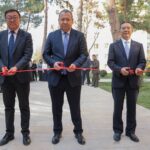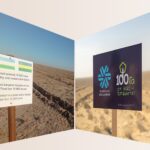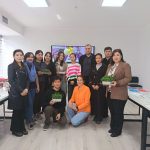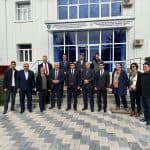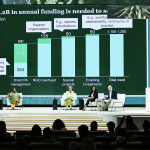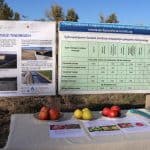The Ministry of Ecology, Environmental Protection and Climate Change of the Republic of Uzbekistan, together with the United Nations Development Programme (UNDP), the United Nations Economic Commission for Europe (UNECE) and the United Nations Refugee Agency (UNHCR), announced the launch of a new joint project entitled “Master Planning and Innovative Financial Solutions to Support the Implementation of the Yashil Makon Initiative”.
The event brought together key stakeholders to discuss the strategic direction and expected results of the project. The goal of the project is to promote sustainable development within the framework of the Yashil Makon initiative proposed by the Government of Uzbekistan. This initiative is aimed at transforming the country’s environment using environmental and social approaches.
The project involves the development of a comprehensive Yashil Makon master plan, the introduction of innovative financial solutions and the creation of new sources of income for vulnerable communities and internally displaced persons in the Surkhandarya region.
The participants of the event were informed about the objectives, main components and timeframe for the implementation of the project. During the discussion, the need to strengthen cooperation between the Government of Uzbekistan, UNDP, UNECE, UNHCR and other key partners was emphasized. The next stages of the project were outlined and clear roadmaps with defined milestones and expected results were presented.Aziz Abdukhakimov, Minister of Ecology, Environmental Protection and Climate Change of the Republic of Uzbekistan, noted: “The Yashil Makon initiative is not just a greening project, but an important step towards building a sustainable future for every citizen of Uzbekistan. We are proud of the financial support of international partners such as UNDP, UNECE and UNHCR in implementing this significant initiative, which will have a positive impact on the ecology and economy of our country.”
Akiko Fujii, UNDP Resident Representative in Uzbekistan, emphasized the importance of partnership in achieving sustainable results: “By restoring degraded lands through large-scale afforestation efforts, we not only revive ecosystems, but also create sustainable livelihoods for local communities. This initiative is a path to both environmental sustainability and poverty reduction, giving people the tools they need to thrive.” Dumitru Lipcanu, UNHCR Acting Representative in Central Asia, said: “Environmental management is a priority at all stages of UN programming. We strive to contribute to environmental conservation and sustainable management of natural resources around the world, and Uzbekistan is an example of this approach. This project increases the self-sufficiency and economic integration of displaced people and marks their contribution to host communities in mitigating climate change.” The project will use innovative approaches to ensure long-term sustainability and align with the Yashil Makon initiative. Pilot sites for reforestation in the Surkhandarya region and the creation of plant nurseries are planned, which will form the basis for the restoration of green spaces.
The project will involve internally displaced and vulnerable people from local communities, which will highlight their contribution to climate change mitigation activities. The possibility of trading carbon credits is also being considered to attract additional resources for the project.
Tashkent, Uzbekistan (UzDaily.uz)


